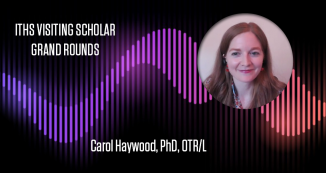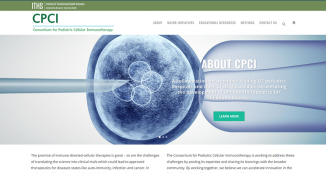29 Oct Ophthalmology Study Seeks to Improve Healthcare Transparency

Dr. Bryan Lee, ophthalmology, performing an eye exam with a slit lamp in the Eye Institute at Harborview Medical Center.
The Health Insurance Portability and Accountability Act grants patients the right to review their clinic, or visit, notes, which most often occurs by providing them a paper copy when notes are actually requested. Dr. Bryan S. Lee, an Assistant Professor of Ophthalmology at the University of Washington, is researching an approach to make it easier for patients to access their notes at any time and to do so in a way that is not burdensome to providers.
Dr. Lee’s study, which is based on the OpenNotes national initiative, studies the attitudes of ophthalmologists and their patients who are gaining electronic access to clinic notes via UW’s Epic eCare portal. Previous research conducted in primary care offices by the OpenNotes team showed that patients felt access helped them better understand their care, better care for themselves, and view providers more positively. Dr. Lee’s study is also assessing patient and provider satisfaction levels.
“I am really interested in improving communication between doctors and patients,” said Dr. Lee. “Clear communication is becoming more and more important as trends in healthcare increasingly emphasize transparency.”
The OpenNotes approach had been studied primarily in primary care settings, including UW’s Harborview Medical Center, prior to this project. While results from primary care settings were overwhelmingly positive, very little data are available for ophthalmology and other specialty clinics.
“Ophthalmology is considered pretty opaque by other doctors and can be difficult for patients and their doctors to understand,” explained Dr. Lee. “We hope through this research and related efforts that both patients and providers will be more comfortable with and have better knowledge of eye care.”
Dr. Lee’s approach to assessing project outcomes was to survey several hundred patients at the three UW ophthalmology clinics as well as the providers in his department. To finish the patient surveys in just one month, he turned to the Institute of Translational Health Sciences’ Research Coordination Center (RCC) for support. Twelve research coordinators from the ITHS RCC worked closely with front-desk staff to recruit, consent, and administer a survey for patients who met eligibility criteria over that one-month period.
“The RCC staff is very professional, flexible, and great to work with,” concluded Dr. Lee. “They were enthusiastic about the project and were able to come into our clinic and patient care areas and do their jobs very well without impacting patient care or patient flow.”
The collection of patient data is complete and collection of provider data is currently concluding. Dr. Lee and his team then plan to survey patients and ophthalmologists again after one year of OpenNotes use.







